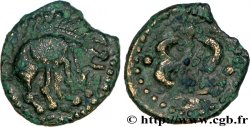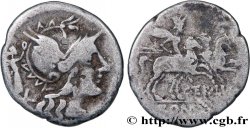Obverse
Obverse legend : (DIVERSES LÉGENDES).
Reverse
Reverse legend : (DIVERSES LÉGENDES).
Historical background
CORPORATIONS - DISTILLERS AND LEMONADE VENDERS
In the Middle Ages, we only know in France beer, hypocras, mead, sweet or sweet wines. The sale of liqueurs was a free profession, which everyone could exercise freely. In the 16th century, the use of eau-de-vie began to spread: it was drunk by the vinegar maker and the apothecary grocers, while the consumption of new drinks, refreshing or warming, imported from Italy (thanks, among others, to Catherine de Medici), whose use was completely unknown at the time: lemonades, orangeades, cetre sour, frangipane water, sorbets, rossoli, populo, etc.. The one that has the most success with the public is lemonade, which then gives its name to the lemonade. In 1624, the right to make eaux-de-vie was formed into a distinct specialty, while vinegar makers and apothecaries continued to have the right to distillation.. At the same time, new kinds of liquids arrived in France from the French colonies: tea from China, chocolate, and coffee, which gradually dethroned lemonade in the minds of the public; as proof, the lemonade shop takes on the name of café everywhere. Louis XVI erected this profession into a trade body in 1676. It is unclear whether brandy merchants and distillers sold lemonades and other soft drinks; but certainly the lemonadiers sold strong liquors. The lemonade makers and the eau-de-vie merchants therefore asked to form a single corporation, which was granted to them.. A police ordinance of 1685 completes the statutes of this corporation: “The lemonade shops remain open all night; they now serve as a place of assembly and retreat for night robbers, tricksters and other unhealthy and disordered people, which is done with all the more ease since all these shops and houses are designated and distinguished from the others by lanterns signs on the street, which are lit there every evening and which serve as a signal. Order, therefore, that the lanterns be removed and the shops closed after five o'clock in the evening from November to March, and after nine o'clock from March to October.. The lemonadiers protest, claiming that their business only operates in the evening! On his complaints, they are then given up to six hours in winter and ten hours in summer. It should be noted that in 1639, the trade came under the jurisdiction of the Cour des coins under the pretext of manufacturing acids that could alter the coins..








 Report a mistake
Report a mistake Print the page
Print the page Share my selection
Share my selection Ask a question
Ask a question Consign / sell
Consign / sell










